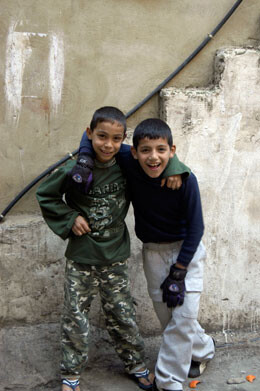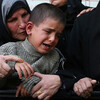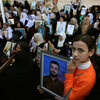
Aida camp residents say wall harming their livelihoods
1 January 2008
AIDA REFUGEE CAMP, BETHLEHEM, 31 December (IRIN) - Behind a luxurious five-star hotel and close to Bethlehem, yet unknown to most visitors who converged on nearby Manger Square for the recent Christmas mass, residents of Aida refugee camp — home to nearly 5,000 people — say their lives have been adversely affected by the Israeli restrictions on movement, in particular the barrier built around the city. Read more about Aida camp residents say wall harming their livelihoods








